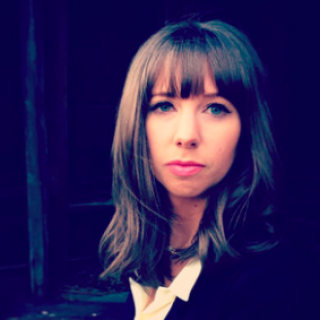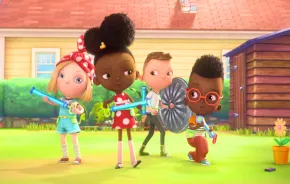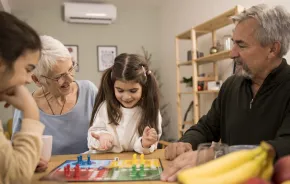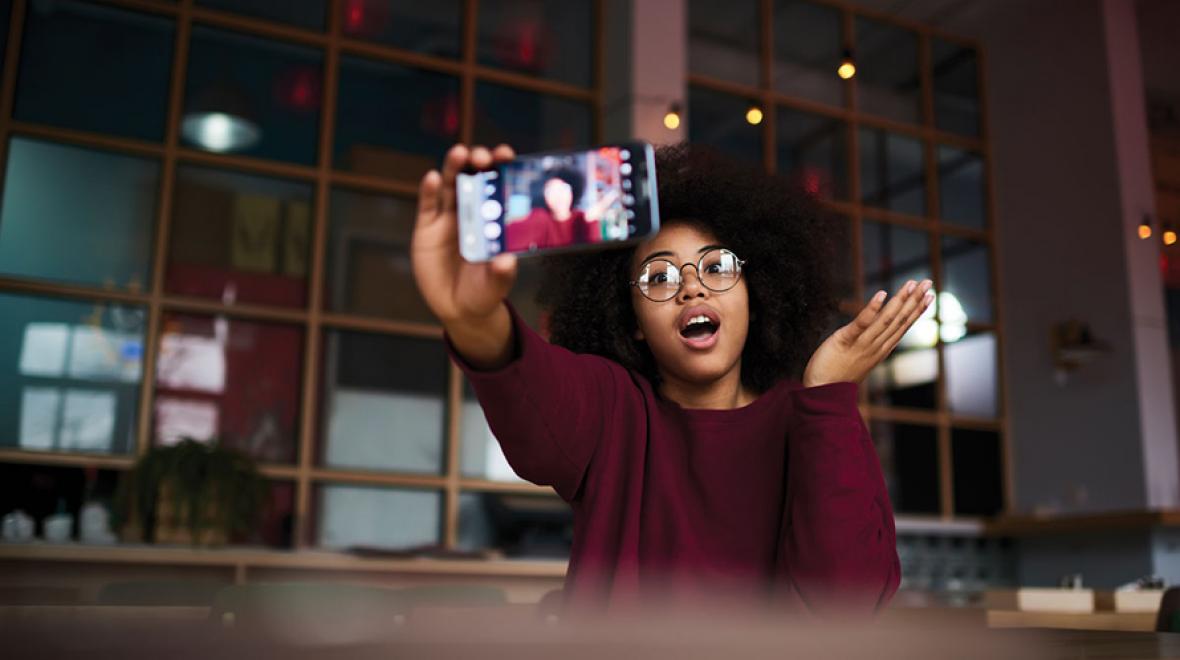
Twin sisters Monica and Shelby Church were teenagers attending Jefferson High School in Federal Way when they started their respective beauty channels, Hairodynamic and Teenmakeuptips. Their numbers skyrocketed, and now, in their early 20s, they continue to run the highly popular channels, with more than 1 million subscribers each.
Achieving that kind of success on the platform is what many young YouTubers envision when they launch their own channels. But kids who wade into waters of content creation often find there’s no quick, direct path to YouTube fame.
It can also be a place where kids stumble upon inappropriate content or experience cruel comments from strangers or cyberbullying. And, as with any digital platform, too much screen time can detract from analog friendships and activities.
So, how should you react when your kid is obsessed with becoming a YouTuber? First, know that your kid isn’t alone.
Plugged in
For many kids, YouTube has become a major part of their media diet. Take, for example, Anitra Durand Allen’s daughters, 13-year-old Olivia and 11-year-old Alexandra, in Louisville, Kentucky.
“They know that there’s TV and they understand that there’s cable,” Allen says, “but they get their entertainment, for the large part, from YouTube.”
And for kids who enjoy watching YouTube videos, making videos themselves is sometimes the natural next step. Inspired by popular accounts like Ryan Toys Review, a channel with more than 16 million subscribers, even kids in early elementary school harbor big ambitions.
Gabriel Rodriguez, 7, who lives on Long Island in New York, has hopes of one day growing his modest following. His mom, Arianny Rodriguez, created a YouTube channel for him because he really liked being in videos she made. He’s quickly learned, however, that building an audience can be a big challenge — for now, it’s mostly his friends and cousins who comment on his videos.
“He sees all these crazy accounts with millions of followers and views,” his mom says. “It’s just not that easy.”
Even if his channel isn’t getting tons of views, Gabriel likes being on camera and he enjoys making the videos. Rodriguez says she’ll continue teaching him about video production and helping him when he wants to try another one.
Even if YouTube doesn’t bring fame or fortune, some parents say the platform is still a positive influence in their kids’ lives.
Jill McKay, who lives outside Baltimore, Maryland, says making videos keeps her sons, 11 and 13, interested in family outings at a time when they might otherwise be less than thrilled to hang out with their parents.
“My kids like to take their camera and make a YouTube video of it,” she says. “It makes them look forward to the trip and be more engaged in taking those kinds of adventures.”
She and Rodriguez both say their kids learn important skills from their online activity. Publishing videos online gives the kids experience navigating a website, posting content, writing headlines and descriptions — all skills they may use one day in school, college or work. And making videos requires its own skill set: Kids have to learn how to use a camera, frame their shots, and work with lighting, sound and editing software.
Along with those technical skills, McKay says, YouTube provides an opportunity to practice effective communication, because producing content requires kids to think about their message and work to convey what they want to say.
McKay and Rodriguez say their kids haven’t experienced many negatives on the site, but they know that being active on social media sometimes means getting harsh comments — something no parent wants their child to experience.
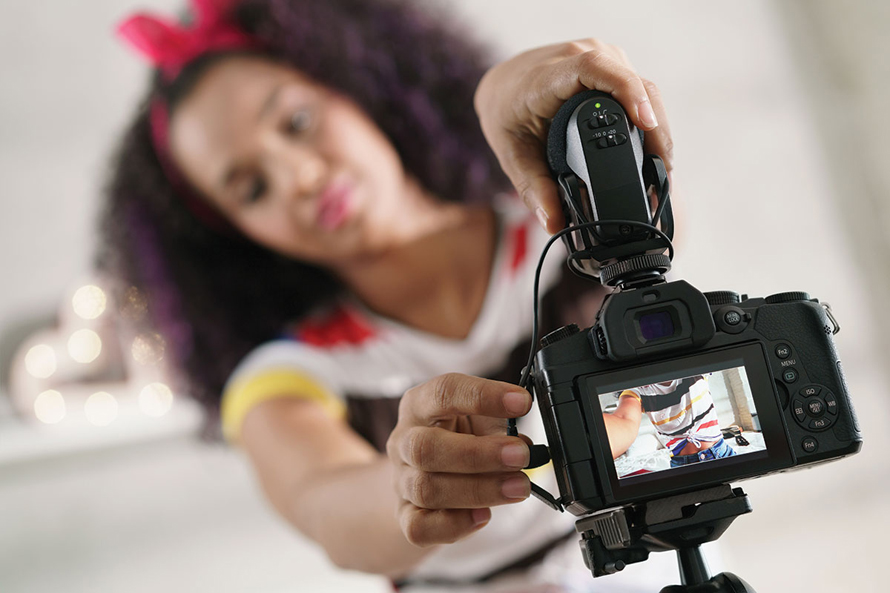
Avoid making it taboo
Engaging in social media — even feeling the impact of rude or hurtful comments — can contain lessons for kids on appropriate social behavior. But kids learn the most, says University of Washington professor and lecturer Tabitha Kirkland, with some parental involvement.
Social media holds a lot of power for kids because teens and preteens crave validation, Kirkland says.
“A big piece of this ends up being social comparison,” she says. “Social media allows them to show off or highlight the positive or cool aspects of life.”
Receiving “likes” or thumbs-up can be an exciting jolt that keeps kids (and adults) coming back for more. Research has shown that these notifications activate the brain’s reward system and produce a dopamine release. For children, who are exploring their sense of self and developing an identity outside of their caregivers and immediate family, those likes might be even more significant.
While parents should be aware of risks that come with using social media, Kirkland says, they shouldn’t try to block kids from using it altogether.
When parents forbid children from doing something, children often find ways to do it anyway, but they’re more likely to do it in secret. In that case, Kirkland says, kids are less likely to turn to their parents when problems or questions arise.
“From the parenting perspective, it becomes, ‘How do I make sure my kid is getting the most benefit and the least harm?’” she says.
The best ways to limit the negative aspects of social media and encourage the positive ones are to remain involved in your child’s online life, Kirkland says. Children’s online activities should be age-appropriate, she says. The younger a child is, the more involved you’ll need to be.
With kids of all ages, Kirkland says, maintain an ongoing conversation. If you talk openly and without judgment about what your child does, sees and experiences online, they’ll be more likely to come to you with their own questions and concerns.
But what about bullying?
Cyberbullying is also a real issue that parents should be aware of, she says. Too little supervision can lead not only to your kid becoming the victim of cyberbullying, but also the perpetrator.
Allen, whose daughters enjoy watching YouTube, says she’s confident she could help her kids cope with cyberbullying. But for now, she’s limiting their social media experience to Instagram because she has concerns about the YouTube platform itself.
Each of her daughters has a compelling reason to engage online: Eleven-year-old Alexandra is a nationally competitive sprinter, and 13-year-old Olivia runs a nonprofit. Allen closely monitors their Instagram accounts, where each girl has hundreds of followers.
While Allen supports her daughters’ use of Instagram and the connections they form there, she’s concerned about the YouTube algorithm, which she says gives YouTubers less control over what happens to their content.
When one video ends, the site automatically supplies another one to follow it. Critics say the site’s algorithm makes it too easy for a kid’s video to be followed by inappropriate content that has nothing to do with the video that preceded it.
For Allen to feel comfortable letting her children publish on YouTube, she says, the algorithm needs to be better at filtering out inappropriate videos.
“If it’s marked PG or G or family-friendly, I need to know it actually is,” she says.
Supervision and communication are the forms of assistance that Allen applies to her daughters’ online activity. Social media contains opportunities for both good and bad behavior, Allen says, and it sometimes gets an unfair bad rap. But parents can be their kids’ guides to unlocking its positive potential.
“As the parent of kids who’ve known nothing but social media,” she says, “I think it’s our responsibility to make sure they’re responsible users of social media.” n
Worried about your teens and screens?ParentMap is hosting the Seattle premiere screening of the new IndieFlix documentary, "LIKE." Each screening includes a post-film Q&A with local experts to discuss key takeaways and answer your questions about this hot-button topic. Screening dates: |
Worried about your teens and screens?ParentMap is hosting the Seattle premiere screening of the new IndieFlix documentary, "LIKE." Each screening includes a post-film Q&A with local experts to discuss key takeaways and answer your questions about this hot-button topic. Screening dates: |
Seattle-area camps and classes for kids interested in techFor budding YouTubers, a class in video production or animation may help them take their craft to the next level. All around the Sound, you can find classes, workshops and camps that focus on advancing kids’ skills in coding, STEM and multimedia through fun and challenging projects. Check out the following programs for tech-inclined kids.
|




